

| Title | Author | Call# | Book Cover |
|---|---|---|---|
| Sociology: A Brief Introduction | Schaefer, Richard T. | HM 586 .S32 2009 | 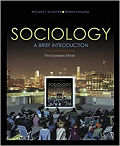 |
| Canada’s Rights Revolution: Social Movements and Social Change | Clement, Dominique | JC 599 .C3C54 2008 | 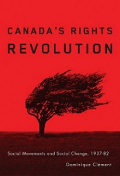 |
| Canadian Society in the Twenty-First Century: An Historical Sociological Approach | Harrison, Trevor W. | FC 95.5 .H37 2021 | 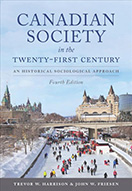 |
| Elements of Sociology: A Critical Canadian Introduction | Steckley, John | HM 586 .S84 2010 | 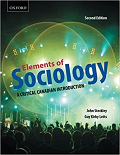 |
| Society: The Basics | Macionis, John J. | HM 586 .M32 2019 | 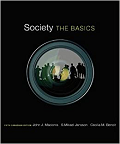 |
* Want to reserve one of these titles? Email library@alexandercollege.ca with your student # and the book title.
These e-Books are available in the online library collection. Click the title to access the resource.
Powell, Jason L. 2013
Woodin, Tom 2018
Sociological Theory, Methods, and Perspectives
Michalski, Joseph H. 2018
These handbooks provide easy to digest information about topics covered within sociology.
A Guide to Writing Sociology Papers (2007) by Judith Richlin-Klonsky
A Guide to Writing Sociology Papers is written in a clear and conversational style, examines a wide range of writing assignments for sociology courses at all levels of the curriculum. It can be found in library under call number HM 45 .G8 2008.
The Cambridge Dictionary of Sociology (2006) by Bryan S. Turner
The Cambridge Dictionary of Sociology provides an authoritative and comprehensive overview of the classical and contemporary, featuring over 600 entries written by leading international academics.
A Dictionary of Sociology (2014) by John Scott
A Dictionary of Sociology is a dictionary that is both an introduction to sociology for beginners and a source of reference for more advanced students. It can be found in library under call number HM 425 .D5735 2014.
When looking for resources related to SOCI, try some of these keywords in your searching:
Sample search: women AND workplace AND Canada
* Interested in learning more about using keywords for research? Check out our videos on how to create and search using keywords on our Research Skills page.
Open access resources are resources that are available to everyone for free online. Links here will lead to sites where you can download textbooks or access journals related to Sociology.
Introduction to Sociology by Henry L. Tischler
Introduction to Sociology adheres to the scope and sequence of a typical introductory sociology course.
Sociology: Understanding and Changing the Social World Introductory text to various sociological concepts.
Society: The Basics by John J. Macionis
Society: The Basics, Fifth Canadian edition is written to help students find and use sociology in everyday life.
Assignments written for Sociology courses use the American Psychological Association (or APA) rules for formatting. APA handbooks are available for your reference in the library or at the Writing and Learning Centre. Online WLC citation guides can be found here. You can also book an appointment with the Writing and Learning Centre for workshops and one-on-one citation help.
Need help? Connect with a Librarian through AskAway!
AskAway ChatAlexander College acknowledges that the land on which we usually gather is the traditional, ancestral and unceded territory of the Coast Salish peoples, including the territories of the xʷməθkwəy̓əm (Musqueam), Skwxwú7mesh (Squamish), and Səl̓ílwətaʔ/Selilwitulh (Tsleil-Waututh) Nations. We are grateful to have the opportunity to work in this territory.
Alexander College acknowledges that the land on which we usually gather is the traditional, ancestral and unceded territory of the Coast Salish peoples, including the territories of the xʷməθkwəy̓əm (Musqueam), Skwxwú7mesh (Squamish), and Səl̓ílwətaʔ/Selilwitulh (Tsleil-Waututh) Nations. We are grateful to have the opportunity to work in this territory.